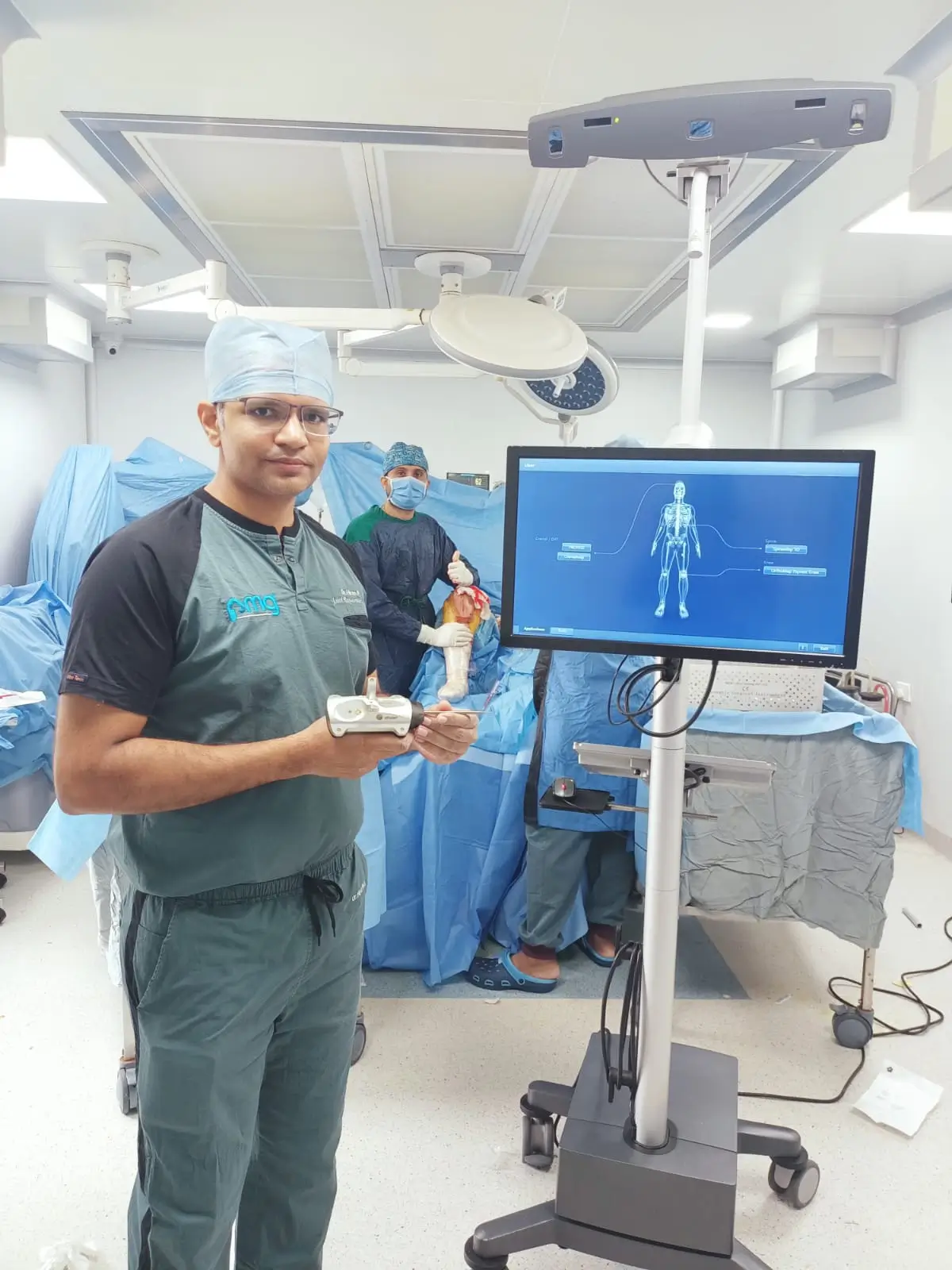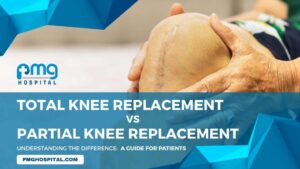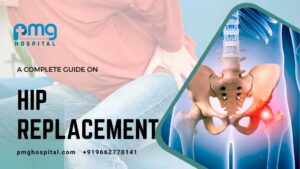
Patient’s Guide For Knee Replacement Surgery
As the largest joint in the body, our knees perform most of our daily tasks. This joint consists of three




Passion and determination has made his name in complex and revisonal knee and hip replacement surgeries. Dr. Hiren has committed his career to assisting patients in achieving the greatest outcomeswhile maintaining the highest levels of safety and comfort
This is surgical procedure involves removing the knee joint’s worn-out or damaged surfaces and replacing them with artificial implants
Total hip replacement is a surgical procedure in which the damaged cartilage and bone is removed from the hip joint and replaced with artificial components
A shoulder replacement is a procedure that replacing damaged parts of the shoulder joint with artificial components called prostheses
A major bone or muscle injury from an external force, such as a fall or vehicle collision, is referred to as orthopaedic trauma
A minimally invasive procedure known as a “partial knee replacement” replaces the damaged compartment of the knee with an implant
One of the main ligaments responsible for supporting the knee is the anterior cruciate ligament (ACL). Surgery to repair a torn ACL is known as ACL reconstruction
Arthroscopy is a minimally invasive procedure that looks within a joint with a camera. A variety of orthopedic illnesses that might lead to joint pain or mobility issues are diagnosed & treated using arthroscopy
Knee replacements occasionally fail for a variety of reasons. The goal of revisional knee replacement surgery is to replace your old knee implant in whole or in part with a new one
Are you suffering from knee, hip, or shoulder pain? Got injured during sports or suffer from orthopedic trauma injuries? Feel free to reach us to get best orthopedic treatments in Ahmedabad, Gujarat, India.

One Smart Step Ahead In Knee & Hip Replacement Surgery
i – SAR is less invasive & simplified smart intelligent sensor assisted Joint replacement procedure to improve surgical performance and clinical outcome of knee or hip replacement surgery.
Benefit Of I -SAR Joint Replacement

At PMG Hospital, we are committed to offering our patients the most advance and proven methods for orthopadic surgeries and post operative recovery. We are experts in all facets of hip and knee replacement surgery, including total joint replacement, partial joint replacement, revision of failed hip and knee replacement, and orthopedic arthroscopy procedures. PMG is best orthopedic hospital in Ahmedabad
Dr. Hiren Patel has successfully carried out 10000+ joints surgeries
PMG Hospital is advance orthopedic surgical center with an advance medical facilities
PMG team's expertise and experience always brings out precise result
Qualified, skilled medical staff is 24 * 7 available for you since your arrive

As the largest joint in the body, our knees perform most of our daily tasks. This joint consists of three

In the past few decades, knee replacement surgery has developed enormously, providing a second chance to thousands of patients worldwide.

Hip joints are not only an important but crucial part of our musculoskeletal system. Before we start to discuss the
The number of orthopedic patients we treat each year is evidence of the high calibre of our offerings. Here are some of the patient testimonials that PMG has had the honour of helping them
What does a person entail in order to choose the best orthopedic hospital in Ahmedabad? He or She is looking for experienced orthopedic doctors, modern medial infrastructure, Skilled hosptial staff. PMG Hospital exceeds all of your expectations !!
At PMG hospital, we are committed to providing comprehensive care for all of our patients. Our core services include knee, hip and shoulder replacements, fracture (trauma) surgeries, ACL reconstructions and many more.
PMG Hospital is NABH Certified orthopedic hospital in Ahmedabad, which gives you assurance for the highest standards of quality and safety are maintained
The cost of knee replacement surgery can vary widely depending on several factors, including the country and region where the surgery is performed, the specific hospital or surgical center, the surgeon’s fees, the type of implant used, and any additional medical expenses.This estimate generally includes the surgeon’s fee, hospital stay, anesthesia, pre-surgery consultations, and post-surgery physical therapy. Insurance coverage can significantly affect the out-of-pocket cost for patients, so it is important to check with your insurance provider for specific details regarding coverage and potential expenses. Additionally, some hospitals and surgical centers may offer bundled pricing or financing options to help manage the cost of the procedure.
The main difference between partial and total knee replacement lies in the extent of the surgery and the parts of the knee joint that are replaced:
Partial Knee Replacement (PKR):
Total Knee Replacement (TKR):
You may need knee replacement surgery if you experience the following conditions and symptoms:
Severe Knee Pain: Persistent pain that limits your daily activities, such as walking, climbing stairs, and getting in and out of chairs. This pain may also interfere with your ability to sleep.
Stiffness and Limited Mobility: Reduced range of motion in your knee that makes it difficult to bend or straighten your leg fully.
Swelling and Inflammation: Chronic swelling and inflammation that do not improve with rest, medication, or other treatments.
Deformity: Noticeable bowing or other deformities in the knee joint.
Failed Conservative Treatments: Lack of improvement despite trying non-surgical treatments such as medications, physical therapy, weight loss, corticosteroid injections, and other interventions.
Impact on Quality of Life: Significant impact on your quality of life, preventing you from performing everyday activities and enjoying your usual hobbies and interests.
Advanced Arthritis: Diagnosis of advanced osteoarthritis, rheumatoid arthritis, or other degenerative joint diseases confirmed by X-rays and other imaging studies showing severe joint damage.
Hospital Stay: Most patients stay in the hospital for 1 to 3 days after surgery. During this time, you will begin physical therapy to start moving your knee and walking with assistance.
First Few Weeks:
Months 2-3:
Months 3-6:
Full Recovery:
An ideal patient for knee replacement surgery typically exhibits the following characteristics:
Severe Knee Pain and Stiffness: Experiences chronic, severe knee pain and stiffness that significantly limits daily activities, such as walking, climbing stairs, and performing household chores. Pain may also interfere with sleep.
Failed Conservative Treatments: Has tried and not found relief from non-surgical treatments such as medications, physical therapy, corticosteroid injections, weight loss, and lifestyle modifications.
Advanced Knee Arthritis: Diagnosed with advanced osteoarthritis, rheumatoid arthritis, or post-traumatic arthritis, confirmed through imaging studies (X-rays, MRI) showing substantial joint damage.
Reduced Quality of Life: Has a significantly diminished quality of life due to knee pain and mobility limitations, affecting their ability to work, exercise, and engage in social activities.
Functional Limitations: Struggles with knee function despite using assistive devices like canes or walkers and finds it difficult to perform essential tasks independently.
Age and Health: Generally, patients between the ages of 50 and 80 are considered good candidates, though younger and older patients can also benefit from the surgery if they are in good health and the knee condition severely impacts their life. The patient should be healthy enough to undergo surgery and anesthesia.
Realistic Expectations: Understands the risks and benefits of knee replacement surgery, has realistic expectations about the outcomes, and is committed to participating in post-operative rehabilitation to ensure the best possible recovery.
Yes, physiotherapy is essential after knee replacement surgery. It plays a crucial role in the recovery process and helps ensure the best possible outcomes. Here are the key reasons why physiotherapy is necessary:
Restores Mobility: Physiotherapy helps restore range of motion in the knee, allowing you to bend and straighten your knee fully.
Strengthens Muscles: Exercises prescribed by a physiotherapist strengthen the muscles around the knee, which is vital for supporting the new joint and improving overall stability and function.
Reduces Swelling and Pain: Physiotherapy techniques, including specific exercises and modalities like ice therapy, help reduce post-operative swelling and pain.
Improves Balance and Coordination: Therapy includes exercises that improve balance and coordination, reducing the risk of falls and enhancing overall mobility.
Promotes Healing: Guided physical therapy accelerates the healing process by increasing blood flow to the area, which aids in tissue repair and recovery.
Prevents Complications: Regular movement and exercise help prevent complications such as blood clots, joint stiffness, and muscle atrophy.
Achieves Functional Goals: Physiotherapists tailor rehabilitation programs to meet individual goals, whether it’s returning to daily activities, sports, or specific occupational tasks.
Enhances Long-Term Outcomes: Commitment to physiotherapy can improve the long-term success of the knee replacement, ensuring the joint remains functional and pain-free for as long as possible.
The best implant for knee replacement depends on various factors, including the patient’s age, activity level, medical history, and specific needs. There is no one-size-fits-all answer, but here are some commonly used types of knee implants and their features:
Metal-on-Polyethylene (MoP):
Ceramic-on-Polyethylene (CoP):
Ceramic-on-Ceramic (CoC):